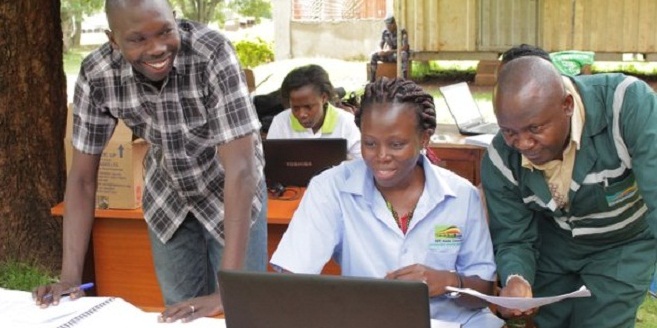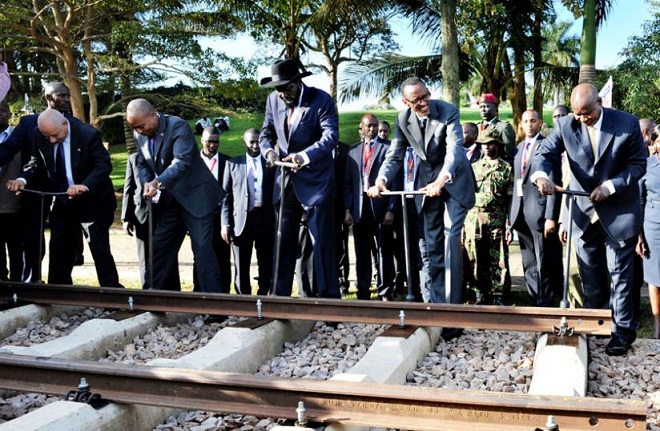
Up to 1,700 people in Tororo will be compensated to enable the Standard Gauge Railway (SGR) project go ahead on schedule in September.
The compensation exercise for the Project Affected Persons (PAPs) started at the weekend Tororo. The SGR is one of several ventures by the Northern Corridor Integration Projects (NCIP) to improve infrastructure in the East African region.
In the past two years, NCIP has witnessed the signing of the agreement on the development of the Mombasa-Kampala-Kigali/Juba Standard Gauge Railway. This was followed by signing and ratification of the Standard Gauge Railway protocol by Partner States and recently commencement of construction for the Mombasa –Nairobi Section.
After payment, which includes 30% disturbance allowance, PAPs are expected off the land in 3 months. pic.twitter.com/6AuvJ4SwhL
— SG Railway Uganda (@SGR_Uganda) May 11, 2016
SGR will develop the Tororo-Kampala route as an eastern route and Tororo- Amuru- Pakwach northern route. The Malaba-Kampala route will be operational by 2020.
Kasingye Kyamugambi, Project Coordinator SGR confirmed that there are 1250 verified PAPs in Tororo and 414 PAPs from Tororo station land. The compensation includes a disburse 30% disturbance allowance to relocate other places in 3months as reaffirmed in the law.
@Head_SGR interacting with a Project Affected Person in Tororo. He is camped in Tororo engaging stakeholders. pic.twitter.com/BxEJ9G4F1i
— SG Railway Uganda (@SGR_Uganda) May 6, 2016
He revealed that there will however be no compensation for people in the wetlands since it’s prohibited by law hence SGR will sort out the issue together with National Forest Authority and National Environment Management Authority.
Some of the affected productive areas include 7km row of the Kakira sugar plantation and Kasaku tea estate where SGR passes through the estate.Fortunately SGR will provide industrialization and employment opportunities during the operational phase.
According to the local content policy, 85% to 90% caters for skilled people while 100% to the unskilled. Kyamugambi was grateful towards the cooperative communities that dealt with SGR regarding land acquisition issues.
Standard Gauge Railway background

In June 2013, the first infrastructure Summit of the Presidents of Kenya, Rwanda and Uganda held in Uganda put in place mechanisms for fast tracking the development of the Standard Gauge Railway (SGR) system linking Rwanda and Uganda to the port of Mombasa to enable faster socio-economic transformation of the East and Central Africa Economies.
These led to the signing of the Tripartite Agreement for the development and operation of a Standard Gauge Railway between Mombasa-Kampala-Kigali with a branch lines to Kisumu (Kenya) and Pakwach/Gul-Nimule (Uganda) between the Republics of Kenya, Rwanda and Uganda in August 2013. The Republic of South Sudan acceded to the agreement in May 2014 extending the line to Juba.
To enable development and operationalisation of a Seamless Railway network from Mombasa to Kigali and Juba, the Summit of the Northern Corridor Integration Projects vide the 3rd Joint Communiqué directed the Partner States to develop a Standard Gauge Railway Protocol for the development and operations of the Standard Gauge Railways. The Protocol was signed by Kenya, Uganda, South Sudan and Rwanda in May 2014.
 The Independent Uganda: You get the Truth we Pay the Price
The Independent Uganda: You get the Truth we Pay the Price



